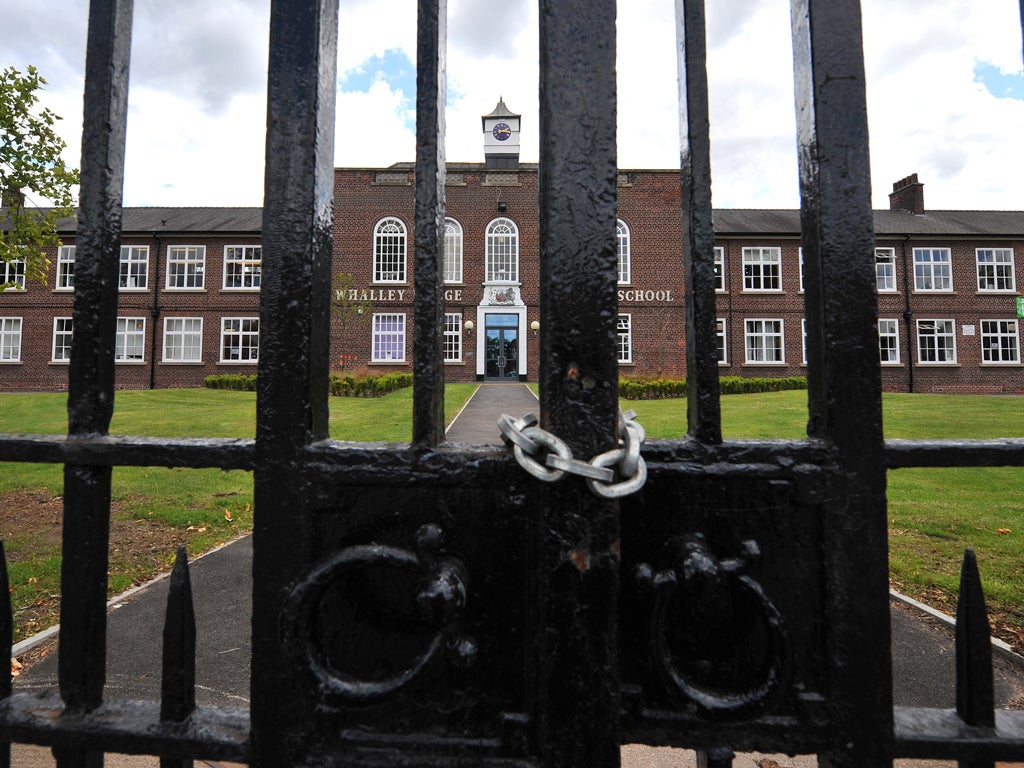From schools to hospitals, strikes set to cause chaos

Millions of pupils could be sent home as their schools shut on Wednesday and thousands of hospital operations are cancelled, on the biggest day of industrial action Britain has faced since the 1970s.
A day of chaos is also expected at ports and airports – with warnings of 12-hour queues and mass cancellations of flights at Heathrow – as immigration officers join national protests over cuts to public-sector pensions. Military personnel were reported last night to have been put on stand-by to protect borders.
Twenty-nine unions, including Unison, Unite and the GMB, are to join the action, which could involve two million teachers, town hall workers, civil servants, social workers and hospital staff walking out across the UK. Figures yesterday suggested the most dramatic impact would be on the schools system, which was due to come to a virtual standstill as members of 10 teaching unions supported the 24-hour strike. There is likely to be a massive knock-on effect on business and industry as more than 20,000 schools shut and parents are obliged to take a day off work to look after their children.
The Association of Teachers and Lecturers (ATL) yesterday forecast that 87 per cent of the country's 25,000 state-funded schools would close, and a further 12 per cent would face partial closure. The Department for Education also accepted the "great majority" of schools would be forced to shut. A spokesman said that two-thirds of schools closed or were seriously disrupted during the day of action in June – a protest backed by fewer unions. This strike is also being supported by unions that represent school meals staff.
Christine Gregory, a spokeswoman for the ATL, said: "People working in education feel furious and betrayed. The Government has no respect for their pensions."
Although nurses and midwives are not joining the action, hospitals are making plans for significant disruption as staff such as physiotherapists and porters strike. It is estimated up to 400,000 healthcare workers and support staff could strike. The result is likely to be the postponement of 5,500 routine operations, 12,000 diagnostic tests and 40,000 outpatient appointments.
Attempts by the UK Border Agency to draft in replacements for striking immigration officers have foundered, leaving it resigned to huge problems at ports and airports. Francis Maude, the Cabinet Office minister, warned that disruption to travellers was "absolutely inevitable", while David Cameron's spokesman predicted there would "at the very least" be longer queues at passport control.
BAA's chief operating officer for Heathrow, Normand Boivin, predicted delays of up to 12 hours for travellers arriving in Britain. "The delays at immigration are likely to be so long that passengers could not be safely accommodated within the terminals and would need to be held on arriving aircraft," he said. "This in turn would create gridlock at the airport with no aircraft parking stands, mass cancellations for departing aircraft and diversions outside the UK for arriving aircraft."
A Heathrow spokesman said: "Hundreds of BAA's office-based staff have undergone training in assisting passengers during times of disruption. Next week they will be providing 24-hour support for passengers in our terminals, offering information, food and drink and activity packs for children."
Large numbers of civil servants, members of the Public and Commercial Services Union, will walk out of government offices across the country. There is also expected to be a heavy impact on town hall services such as libraries, job centres and housing offices.
The entire public transport system in Northern Ireland will also shut down after Translink, which runs its train and bus network, said it would not be possible to run any services. The action is timed for the day after Chancellor George Osborne's Autumn Statement. The Government says current public-sector pensions are more generous than those provided by private employers.
The Walkout: How services will be hit
UK Borders
A shortage of immigration officials and passport staff is likely to result in lengthy delays at the country's borders. It is expected that the majority of the UK's 6,500 immigration officers will not turn up to work and that there are not enough trained staff who are willing to cross the picket line and make up the shortfall.
The lack of capacity is likely to result in flight cancellations and missed connections. Heathrow's operator, BAA, has asked airlines to halve the number of international flights arriving at the airport on 30 November, fearing gridlock if passengers are forced to disembark once immigration halls are full to capacity.
Trains and buses
National Rail services should be unaffected, though there will be no service on the Tyne & Wear Metro, Glasgow Underground and Northern Irish Railways. The few remaining publicly owned bus services may be affected.
Schools
Closures will vary from region to region but it likely that the majority of Britain's schools will be entirely or partially shut on Wednesday. For example, in the York region only five schools will be fully open while 27 will be closed. Some areas are unlikely to have any form of educational provision at all.
Other public services
Workers across the public sector have heeded the call to strike. Rubbish collections may be reduced, while police officers may be required to replace striking civilian staff and answer 999 calls. The court system is likely to be affected, along with driving tests.
Many staff who work in council offices and hospitals are likely to be absent, delaying administrative matters. Councils are focusing their efforts on the provision of essential "life or death" services and some are warning the public to expect a "Christmas Day" level of service.
Join our commenting forum
Join thought-provoking conversations, follow other Independent readers and see their replies
Comments
Bookmark popover
Removed from bookmarks